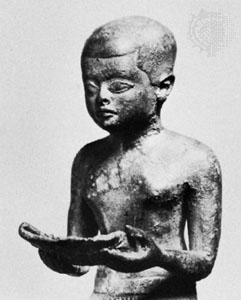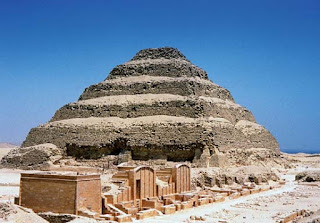 |
| Imhotep, The Encyclopedia Britannica online |
Topics: Africa, Diaspora, Diversity, Diversity in Science
Alternative Title: Imouthes
Imhotep, Greek Imouthes, (born 27th century BCE, Memphis, Egypt), vizier, sage, architect, astrologer, and chief minister to Djoser (reigned 2630–2611 BCE), the second king of Egypt’s third dynasty, who was later worshiped as the god of medicine in Egypt and in Greece, where he was identified with the Greek god of medicine, Asclepius. He is considered to have been the architect of the step pyramid built at the necropolis of Ṣaqqārah in the city of Memphis. The oldest extant monument of hewn stone known to the world, the pyramid consists of six steps and attains a height of 200 feet (61 metres).
 |
| Step pyramid, Ṣaqqārah necropolis, Memphis, Encyclopedia Britannica |
Imhotep’s high standing in Djoser’s court is affirmed by an inscription bearing his name on a statue of Djoser found at the site of the Ṣaqqārah pyramid. The inscription lists a variety of titles, including chief of the sculptors and chief of the seers. Although no contemporary account has been found that refers to Imhotep as a practicing physician, ancient documents illustrating Egyptian society and medicine during the Old Kingdom (c. 2575– c. 2130 BCE) show that the chief magician of the pharaoh’s court also frequently served as the nation’s chief physician. Imhotep’s reputation as the reigning genius of the time, his position in the court, his training as a scribe, and his becoming known as a medical demigod only 100 years after his death are strong indications that he must have been a physician of considerable skill.
Imhotep, written by the editors of the Encyclopedia Britannica
Comments